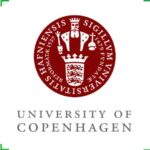Are you holding Master’s degree and ready to elevate your academic journey to the highest level? Karolinska Institute, Sweden, has announced a multiple fully funded PhD positions awaiting talented individuals like you. Don’t miss your chance to be part of our vibrant academic community. Explore the exciting PhD positions available and submit your application today!”
Candidates interested in fully funded PhD positions can check the details and may apply as soon as possible.
(01) Fully Funded PhD Position
PhD position summary/title:–PhD student in Clinical Immunology and Antibody Glycoanalytics
The research group of Dr Charlotte Thålin opens a doctoral (PhD) student position within T-MAP: Translating the Functional Role of Mucosal IgA Clonal and Glycoprofiles to Effective Humoral Mucosal Protection. T-MAP addresses a critical need in the face of viral endemics and pandemics through the translation of in-depth mucosal IgA structure and function to the generation of protective recombinant IgA. The Thålin group has pioneered the field of mucosal immunology, and is situated at Karolinska Institutet, the Department of Clinical Sciences, Danderyd Hospital (KI DS). T-MAP is conducted in close collaboration with Professor Manfred Wuhrer at Leiden University Medical Center (LUMC), at the forefront of proteomics and antibody glycosylation. Early career scientists within the project will transfer between our groups as the project advances, and this position will be shared between the Thålin group at KIDS and the Wuhrer group at LUMC. The successful candidate will thereby be part of a multidisciplinary and collaborative research team.
The Department of Clinical Sciences at Danderyd Hospital (KI DS) conducts extensive clinical research in several areas. The department is growing and consists of research nurses, biomedical analysts, senior researchers, post docs, and PhD students as well as administrative personnel. Every year, about 400 first level students conduct their medical education at the department. LUMC is a center of medical innovation, aiming to improve patient care through internationally leading research. In the glycomics group within the Center for Proteomics and Metabolomics, headed by Prof. Manfred Wuhrer, advanced analytical techniques are applied to study glycosylation in health and disease, with special interest in antibody glycosylation. Both universities collaborate within Eurolife, a life science network comprising nine higher education institutions in Europe.
Deadline : 20.Oct.2024
(02) Fully Funded PhD Position
PhD position summary/title:– Doctoral (PhD) student position in translational medicine in rheumatology with a focus on B cell biology and antibody engineering
We are looking for a motivated doctoral student with an interest in translational research, immunology, and molecular biology methodology. The project is focused on studies of autoantibodies and B cells in systemic lupus erythematosus (SLE). SLE is an autoimmune disease with multiorgan involvement and dysregulation of the adaptive immune system, in particular B cells. In the project the student will study the role of B cells and autoantibodies in the SLE pathogenesis by B cell phenotyping, serological screening, BCR repertoire and single cell analysis, and by generation of monoclonal antibodies from patient B cells. The applicant should be enthusiastic about research and translational medicine. As a doctoral student, the candidate is expected to perform practical laboratory work, contribute to experimental design, optimization of methods, analysis of data, and presentation of results. The student will also participate in courses, seminars and conferences.
Deadline : 11.Oct.2024
View more Fully Funded PhD Positions Click Here
(03) Fully Funded PhD Position
PhD position summary/title:– Doctoral (PhD) Student Position in Endocrine Molecular Pathology
Unraveling the genetics of thyroid cancer progression and dedifferentiation is a complex endeavor that demands a highly motivated and self-driven individual. We seek a doctoral student with a passion for exploring the molecular mechanisms underlying this enigmatic disease. The doctoral project will delve into multiple facets of thyroid cancer progression, with a strong emphasis on functional studies utilizing thyroid cancer cell lines.
By leveraging cutting-edge sequencing profiling techniques, such as RNAseq, single-cell RNAseq, and spatial transcriptomics, coupled with traditional molecular methods like PCR, RT-qPCR, Western blotting, and immunohistochemistry, the candidate will contribute significantly to advancing our understanding of this complex disease.
As a member of our dynamic research team, the PhD candidate will actively participate in collaborative research projects and contribute to the overall goals of the group. Our laboratory provides a rich environment with access to a valuable repository of human tumor samples and relevant cell lines, providing an excellent environment for high-impact research.
Key responsibilities of the PhD candidate will include:
- Conducting experiments and analyzing data with meticulous attention to detail
- Presenting research findings at scientific meetings and in publications
- Collaborating effectively with team members to achieve shared research objectives
- Demonstrating initiative in designing experiments and overcoming technical challenges
- Staying informed of the latest scientific literature and applying new knowledge to research projects
Join our team and contribute to groundbreaking research that could significantly impact the lives of patients with thyroid cancer.
Deadline : 04.Oct.2024
(04) Fully Funded PhD Position
PhD position summary/title:– Doctoral (PhD) student position in structural virology and immunology
In this project, the PhD candidate will investigate structural details of the host cell entry of several viruses that possess an elevated pandemic potential. The candidate will use a systematic approach to uncover structural and mechanistic insights that are crucial for guiding the development of effective vaccines and antiviral treatments. The project involves extensive cryo-EM studies of viral proteins with and without inhibitors, computational structural biology to improve inhibitors, and – to a smaller extent – protein biochemistry and virological wet lab methods. The PhD candidate is expected to take a strong lead in the analysis and interpretation of the results and requires a creative approach to immunology and protein biochemistry to design novel antivirals. Through these efforts, the PhD candidate will contribute to the advancement of knowledge in virology and immunology, ultimately aiding in the preparation for future pandemics.
The doctoral student will be supervised by Dr. Leo Hanke and co-supervised by Dr. Martin Hällberg and Dr. Carl Johan Hagströmer and will have access to state-of-the-art facilities and comprehensive training.
Deadline :27.Sep.2024
About The Karolinska Institute, Sweden – Official Website
The Karolinska Institute sometimes known as the (Royal) Caroline Institute in English is a research-led medical university in Solna within the Stockholm urban area of Sweden. The Nobel Assembly at the Karolinska Institute awards the Nobel Prize in Physiology or Medicine. The assembly consists of fifty professors from various medical disciplines at the university. The current rector of Karolinska Institute is Ole Petter Ottersen, who took office in August 2017.
The Karolinska Institute was founded in 1810 on the island of Kungsholmen on the west side of Stockholm; the main campus was relocated decades later to Solna, just outside Stockholm. A second campus was established more recently in Flemingsberg, Huddinge, south of Stockholm.
The Karolinska Institute is Sweden’s third oldest medical school, after Uppsala University (founded in 1477) and Lund University (founded in 1666). It is one of Sweden’s largest centres for training and research, accounting for 30% of the medical training and more than 40% of all academic medical and life science research conducted in Sweden.
The Karolinska University Hospital, located in Solna and Huddinge, is associated with the university as a research and teaching hospital. Together they form an academic health science centre. While most of the medical programs are taught in Swedish, the bulk of the PhD projects are conducted in English. The institute’s name is a reference to the Caroleans.
Internationally, the university is known for research relating to the genome of the poplar tree and the Norway Spruce, and its highly ranked Institute of (industrial) Design.
Disclaimer: We try to ensure that the information we post on PhdNest.com is accurate. However, despite our best efforts, some of the content may contain errors. You can trust us, but please conduct your own checks too.
Related Posts
- 07 Fully Funded PhD Positions at University of Helsinki, Finland
- 20 Fully Funded PhD Positions at University of Amsterdam, Netherlands
- 10 Fully Funded PhD Positions at Technical University of Denmark (DTU), Denmark
- 20 Fully Funded PhD Positions at University of Copenhagen, Denmark
- 04 Fully Funded PhD Positions at Karolinska Institute, Sweden
- 16 Fully Funded PhD Positions at Uppsala University, Sweden
- 11 Fully Funded PhD Positions at Lund University, Scania, Sweden
- 10 Fully Funded PhD Positions at Leiden University, Netherlands
- 23 Fully Funded PhD Positions at ETH Zurich, Switzerland
- 21 Fully Funded PhD Positions at KTH Royal Institute of Technology, Stockholm, Sweden
- 14 Fully Funded PhD Positions at Chalmers University of Technology, Gothenburg, Sweden
- 04 Fully Funded PhD Positions at Umea University, Sweden













